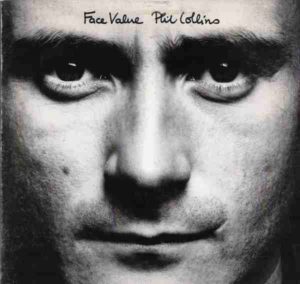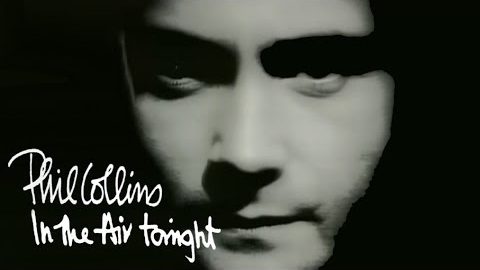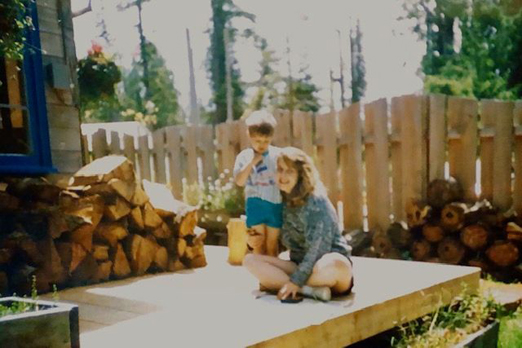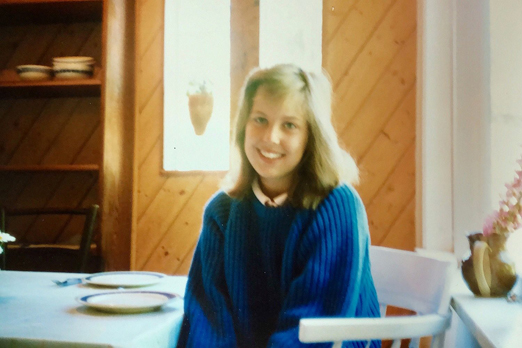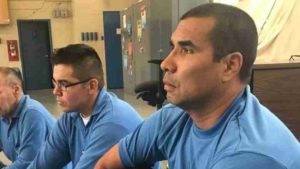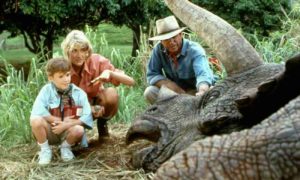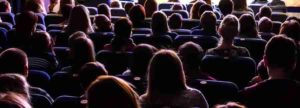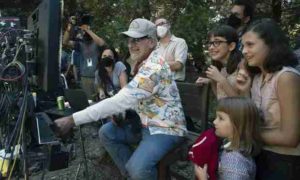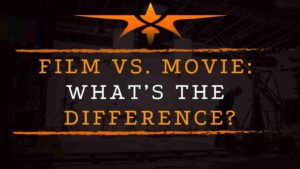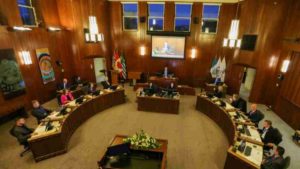
The woman you see pictured above is the love of my life.
In the summer of 1988, Lori and her son Darren, and my two children, 11-year-old Megan and 13-year-old Jude, travelled over to the west coast of Vancouver Island, where we rented a cabin near Tofino, and where we enjoyed the time of our lives, a memory that resides deep in me still.

Photo of Megan Tomlin, taken at the cabin near Tofino where we stayed in August 1988
As the children were growing up, given that (for the most part) during the first few years of their lives I was the sole custodial parent — sharing custody with Cathy as the children grew older — my relationship with my children was close.
Jude and Megan and I talked about everything, and as far as was possible I answered every question put by them to me, as honestly and as fully as I could.
While Jude was an energetic boy of the world, making friends with anyone and everyone, full of joy and laughter, out and about in the neighbourhood and across the city, skateboarding and skiing and as athletic as he could possibly be, Megan was a much quieter child, no more reflective than Jude, just more prone to staying close, wanting always to converse on the broadest range of topics, and anxious to learn as much about the world (and all its complexities) as she could.
Megan, in particular, was curious about the state and nature of the world, about politics and political structures, about the nature of governmental decision-making, both children attending the peace marches with me each year, as well as meetings of the progressive, left-of-centre Coalition of Progressive Electors Vancouver civic party, as well as at various federal and provincial New Democratic Party meetings, with Megan as engaged as she could be as a budding young feminist and community activist.
Megan, as with my mother, was also possessed of a preternatural ability.

Photo, Broadway campus, Vancouver Community College, taken from Chinacreek Park
Over the years, as we shared our lives with one another, both Jude and Megan were curious about my “work”, what I was up to when I wasn’t with them.
Arising from that interest on their part, I always sought to make them a part of my work life, taking them to the places of my employments, to my office in SFU’s Faculty of Education when I was working on my Masters, to attend in the elementary school classes where I taught (when they were on a ProD day), at Vancouver Community College, and later in my work at Pacific Press (which paid phenomenally well for very little work, allowing me to continue work as an arts and entertainment editor, and later, Director of Special Projects at Vancouver Magazine).
Early in the 1988 summer semester at Vancouver Community College, Megan attended my Monday evening English Literature class, sitting quietly near the back, erudite and well-read as always (better read than me, true then, true still), interjecting occasionally to clarify some bit of information, for me or for one of the students in my English Literature class, unassuming, friendly, and clearly informed.
Midway through the three-hour class, we took a 15-minute break, most of the students leaving the classroom, with Megan standing with me outside my office, opposite the classroom, when the following occurred …
“Daddy,” said Megan, “do you see that woman standing just on the other side of the glass doors, the blonde-haired woman leaning on the railing?” Then a pause and the proffering of a question, “What day of the week is it?”
“Monday,” I replied.
“Hmmm,” she said, looking somewhat quizzical. “Monday, huh?”
At which point, she seemed to find herself lost in thought for a moment, then turned to me to say, “By Thursday, the two of you will be living together.”
“Megan,” I protested, “I don’t even know who that woman is. And besides, she seems much younger than me.”
And with that, we dropped the subject, shortly after returning to the classroom, where she set about to correct me on aspects of my teaching presentation style, and information that I had imparted that she felt was not clear enough, and should have been better clarified by me, telling me during the break …
“Given who these students are, you seem not to be taking into consideration that they’ve been out of school for awhile. Your use of language, the words you choose could be better chosen to impart your message. And, oh yeah, you were telling the students that they would be expected to write papers during the semester. I want to be present when you’re grading those papers, and I want to read the papers you’re unsure as to what grade you will give. Overall, I trust your judgement — I’m just not sure I feel all that confident that your command of what constitutes good essay writing is as well-developed as it could be.”
The class was over at 9pm, I met with a handful of my students, some in the classroom, others in the hallway, and a couple in my office (with Megan waiting outside in the hallway, engaging with some of my students).
When the class had come to an end, I reminded the students Tuesday’s class would take place downtown, at a venue where a play I’d be teaching was currently being performed; student attendance was mandatory.
Megan and I left the campus around 9:30pm, stopping off at Mike and Edith’s (friends of ours) Cheesecake, Etc. on Granville Street, near the south end of the Granville Street bridge, where Megan enjoyed a piece of cheesecake topped with fresh, organic strawberries, and I had my usual fresh-baked, and toasted, baguette with butter and jam.
Both VCC Broadway campus English Literature classes attended the performance of the play, which took place upstairs from what is now part of the Vancouver Film School. My class sat close by me, while students who were taking my colleague Peter’s English Lit class sat nearby him, except …
When the lights went down, and the play began, I felt a warm hand move over my right hand, and looked over to see an absolutely radiant, beautiful young blonde woman, with her arm rubbing up against mine. I thought to myself, as I am wont to do in similar situations (which always come as a surprise to me, having occurred quite frequently throughout my life) …
“Raymond, it’s a figment of your imagination. There’s no one sitting next to you, and most certainly, no one has their hand on top of yours.”
I didn’t give it another thought, returning my attention to the play.
On the Wednesday, I taught my Writing class (grammar! … I am the last person you would want to have teach you grammar … I am capable of doing it … grammar just seems so restrictive to me … but I suppose you need to know the rules, before you can break them).
Thursday I returned to teach my English Literature class.
After class was over, and after meeting with a few of my students, a blonde-haired woman walked up to me — who I may, or may not, have been made aware of earlier in the week — saying to me …
“I’m working on a paper on apartheid, and have been told you might be of assistance in helping point me in the right direction to research the paper, and provide me as well with how I might best formulate my argument.
I’ve heard that you like to walk, particularly along the stretch of beach over by Spanish Banks. I was wondering if we might walk and talk, which would afford you an opportunity for some fresh air after three hours in a stuffy classroom? It is, after all, a lovely full moon night, don’t you think?”
I thought the idea of the walk was a good idea, and (as anyone who knows me soon realizes, I am more than voluble about conversing on issues of interest to me). I grabbed my coat out of my instructor’s office, and the two of us headed off in the direction of my car.
But I was famished.

I asked her if we might stop in for a brief moment at Cheesecake, Etc. on the way to the beach — we could discuss her paper over a bite to eat.
When we arrived at Cheesecake, Etc., after consulting with her, when Mike came up to take our order, I requested two orders of the toasted baguette with jam. “Oh, you mean the usual,” said Mike. Both Mike and Edith flitted around this woman and I for the half hour we were in the restaurant, with Mike taking a break to begin singing at his piano, his songs seemingly directed at this young woman and I.
Just before 10pm, this young woman and I left the restaurant, climbed back into my car, and headed towards the beach, traveling down West Broadway, during which glide along the street, she turned to me to say, “You live near here, don’t you? I noticed it’s getting kind of chilly. I was wondering if you might have a sweater I could wear?”
Within a couple of minutes, I pulled up in front of my housing co-op, turning to her saying, “I’ll grab you a sweater and be right down,” with her responding, “I’ll come up with you, if that’s alright, to find the sweater best to my liking.”
Upon entering my apartment, while she stood in my living room, I entered my bedroom to look on the shelving where I kept my two dozen sweaters (what can I say, I’m a sweater person). Upon returning to the living room, holding up a warm, late spring appropriate sweater I thought she would like, standing opposite her, she approached me, and standing on her tippy-toes, she kissed me.
Once again, I thought to myself, “Raymond, she didn’t kiss you. That’s just a false projection. You just better give her the sweater, and head off to the beach.”
While I was having this inner dialogue with myself, she once again stood on her tippy toes, pulling my face closer to hers, and kissed me again, a long, luxurious kiss, a kiss unlike any other I’d ever experienced.
Lori and I moved into together that night.

Coda
Four years from the date of the story above, Lori — who, as has been the case in my life these 50 years and more with all of the women who have shared their lives with me was / is / and remains brilliant, gifted and contributory — completed an honours Bachelor Degree at a Metro Vancouver institution of higher learning, which she then followed up with a Masters degree in Counselling Psychology.

After graduating with her Masters degree, Lori was hired by Corrections Canada to work — in a secure group setting, within various prisons — with sexual offenders who had offended against children. All but a very, very few of the men she worked with truly regretted their offense(s), of that she felt quite sure after spending weeks and months in session with them, and one on one with each one, as well — the recidivism rate among those with whom she had worked well below five per cent.

Shaun Joshua Deacon, 57, has a lengthy criminal history that includes convictions for sexual offenses against children in 1988, 1996 and 1998. (Not referenced in the paragraph directly below)
Except, Lori says, there were the “monsters” who found their way into her group, from time to time, irredeemable, violent sexual offenders who presented a palpable risk to re-offend, and hurt children in ways monstrous and despicable. Those few sexual predators scared the daylights out of her, and as far as she was able Lori did everything in her power to ensure these predators serve out their full sentences, requiring they be supervised in the community upon mandatory release.
Lori went on to complete a PhD. While working on her PhD, Lori was hired as a university instructor, and upon graduation was hired at the university as an assistant professor, working her way through the ranks over the years, publishing as is required, relatively high profile, and a credit to the university and her profession.

While working as a university teacher, Lori was hired as a psychologist within the university’s clinical psychology centre where she treated clients. Over time, Lori opened up a private psychology practice — a very successful practice, as proved to be the case over the years — working, mostly, with women survivors of abuse.
